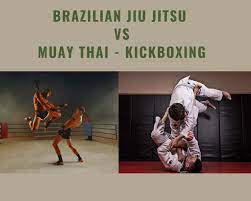Kickboxing vs Kung Fu: Unraveling the Differences and Benefits
Introduction
When it comes to martial arts, there are numerous disciplines to choose from. Two popular options that often captivate the interest of individuals seeking self-defense skills, physical fitness, and personal growth are kickboxing and kung fu. While both martial arts offer a range of benefits, they differ in terms of origin, techniques, and training methods. In this article, we will delve into the world of kickboxing and kung fu, exploring their unique characteristics, advantages, and how they contribute to personal development.
1. Understanding Kickboxing
1.1 The Origins of Kickboxing
Kickboxing originated in Japan in the 1960s and combines elements of Western boxing with various kicking techniques from martial arts such as karate and muay Thai. It quickly gained popularity as a combat sport and an effective means of self-defense due to its dynamic nature and emphasis on both punches and kicks.
1.2 Core Techniques and Training
Kickboxing training focuses on developing strong punches, kicks, knee strikes, and clinching techniques. Practitioners engage in rigorous workouts that enhance cardiovascular endurance, strength, and agility. The training sessions often involve practicing combinations on pads or heavy bags, sparring with partners, and honing defensive skills.
2. Exploring Kung Fu
2.1 Ancient Roots of Kung Fu
Kung Fu, on the other hand, traces its roots back thousands of years to ancient China. It encompasses a wide range of martial arts styles, each with its unique techniques, philosophies, and training methods. Kung Fu places great emphasis on harnessing one’s internal energy, known as Qi, to achieve both physical and mental balance.
2.2 Comprehensive Techniques and Training
Kung Fu training encompasses various forms, including solo routines, partner drills, and controlled sparring. It involves practicing strikes, kicks, throws, joint locks, and meditation to cultivate discipline, flexibility, and mental focus. The graceful and fluid movements of Kung Fu are often inspired by the characteristics of animals, blending strength and agility.
3. Kickboxing vs. Kung Fu: A Comparative Analysis
3.1 Fighting Styles and Techniques
Kickboxing primarily focuses on punches and kicks, combining Western-style boxing techniques with powerful and versatile kicking methods from other martial arts. Kung Fu, on the other hand, offers a wider array of techniques, including strikes, kicks, throws, sweeps, and grappling, emphasizing both long-range and close-quarter combat.
3.2 Physical Fitness and Conditioning
Kickboxing training is renowned for its intense cardiovascular workouts, which improve stamina, endurance, and overall fitness. Kung Fu training, while also physically demanding, incorporates a holistic approach by integrating flexibility exercises, strength training, and Qi cultivation to enhance overall physical health.
3.3 Self-Defense and Practical Applications
Both kickboxing and Kung Fu provide effective self-defense skills. Kickboxing equips practitioners with the ability to strike with precision and defend against common attacks. Kung Fu, with its diverse techniques and focus on redirecting and neutralizing opponents’ force, offers a comprehensive self-defense system suitable for a variety of scenarios.
3.4 Mental Focus and Discipline
Kung Fu places significant emphasis on developing mental focus, discipline, and mindfulness. Through meditation and the cultivation of Qi, practitioners aim to harmonize their mind and body. Kickboxing, while also requiring mental focus, tends to emphasize quick reflexes, strategic thinking, and adapting to dynamic situations.
3.5 Cultural and Philosophical Differences
Kung Fu carries a deep cultural and philosophical significance. It encompasses traditional values, such as respect for elders, harmony with nature, and the pursuit of personal growth. Kickboxing, although rooted in combat sports, promotes values like discipline, sportsmanship, and the pursuit of excellence in athletic performance.
4. Benefits of Kickboxing
4.1 Cardiovascular Health and Weight Management
Kickboxing provides an excellent cardiovascular workout that boosts heart health, improves blood circulation, and aids in weight management. The high-intensity training sessions burn calories effectively, promoting fat loss and increased metabolism.
4.2 Enhanced Coordination and Agility
The combination of punches, kicks, and footwork in kickboxing enhances coordination, balance, and agility. Regular practice hones reflexes and improves overall body control, which can be beneficial in various physical activities and sports.
4.3 Stress Relief and Self-Confidence
Kickboxing serves as an outlet for stress and frustration. The intense workouts release endorphins, promoting a positive mood and reducing stress levels. Additionally, as practitioners progress and master new techniques, their self-confidence grows, leading to improved mental well-being.
5. Benefits of Kung Fu
5.1 Physical Strength and Flexibility
Kung Fu training improves physical strength, conditioning the body through a combination of exercises and techniques. The various stances, strikes, and kicks develop muscle tone and flexibility, contributing to better overall physical fitness.
5.2 Mind-Body Connection and Internal Energy
Kung Fu’s emphasis on the mind-body connection and Qi cultivation promotes internal harmony and balance. Through meditation and breathing exercises, practitioners develop a heightened awareness of their body, leading to improved focus, concentration, and control of energy.
5.3 Self-Defense Skills and Awareness
Kung Fu provides a comprehensive self-defense system that focuses on technique, timing, and adaptability. The training equips practitioners with practical skills to defend themselves effectively while fostering situational awareness and the ability to assess potential threats.
6. Conclusion
In conclusion, kickboxing and kung fu offer unique paths for self-improvement, physical fitness, and self-defense. Kickboxing’s dynamic and intense workouts cater to those seeking a sport-oriented approach, emphasizing cardiovascular health and overall conditioning. Kung Fu, with its rich history and holistic philosophy, provides a well-rounded system that cultivates not only physical prowess but also mental focus and internal harmony. Ultimately, the choice between kickboxing and kung fu depends on individual preferences, goals, and the desired balance between athleticism and personal growth.







